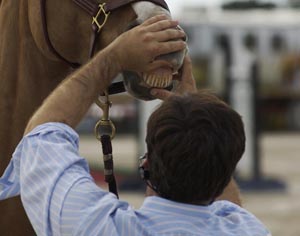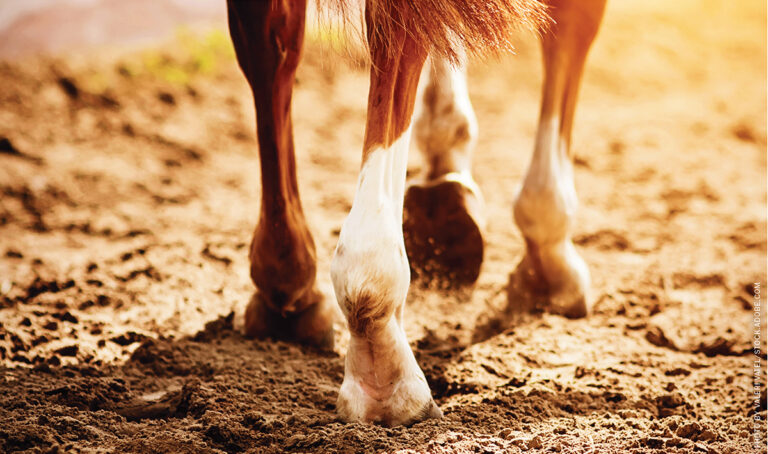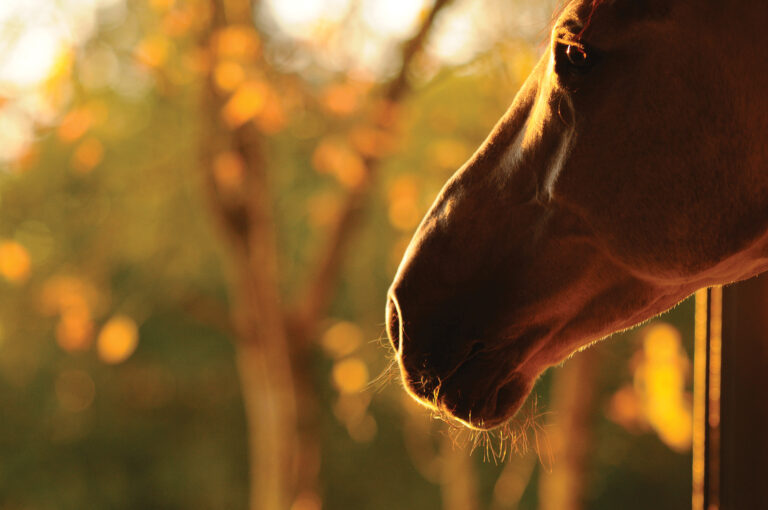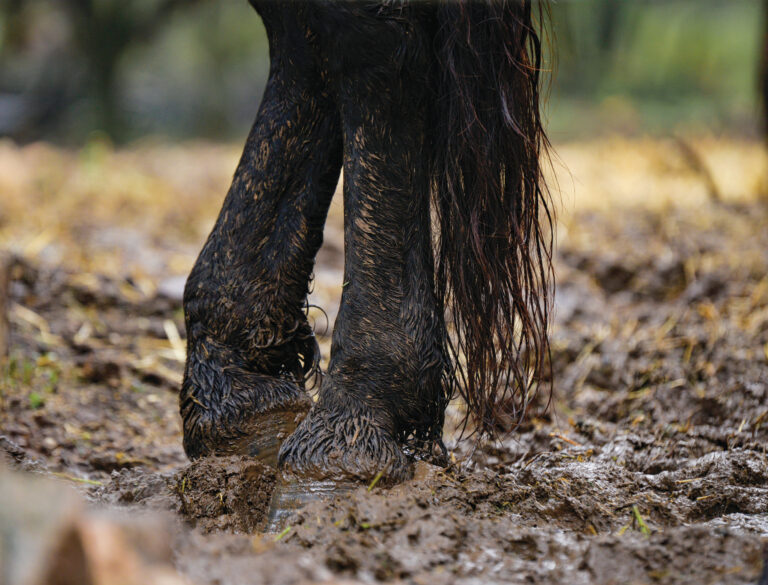To find a reputable equine dentist, first ask your vet about his or her dentistry skills. Your vet may have taken continuing-education courses in equine dentistry, and invested the time and money into the equipment required for performing thorough dental work. If he or she hasn’t, ask for a referral to someone who has–preferably another licensed vet.

Caveat: Beware of lay dentists who work on horses’ teeth, but aren’t vets themselves. In many states it’s illegal for non-veterinarians to perform equine dental procedures. In states that do permit trained dental technicians to work on horses, such individuals must work alongside a licensed vet. Check your state’s regulations before choosing an equine dentist. If lay dentists are legal there, and you choose to use one, make sure he or she works directly with a vet, who can sedate your horse, and perform such invasive procedures as tooth extractions.
Also, ask whether the dentist has received any formal training. Dental technicians can be certified through a number of different organizations, some which are listed below.
Here are two sources for finding a qualified equine dentist in your area:
Dr. Bartlett is an equine practitioner and accomplished reiner. He’s past-president of the National Reining Horse Association, and was inducted into its Hall of Fame in 2000. He lives in Vincennes, Ind., with his wife, Kim, and their two children.






